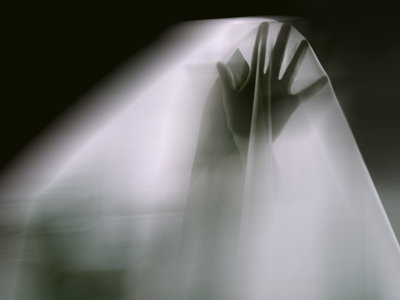
The Woman in Black - Extract 2
GCSE Revision Quiz to Test Yourself
This GCSE English Literature quiz is the second of two extract questions for The Woman in Black by Susan Hill. It takes place in the tenth chapter, “Whistle and I’ll Come to You”. As you will remember from reading this chapter, Arthur reaches the limits of how much terror he can tolerate when he is forced to crawl out into the marsh, risking his own life to save Spider. This passage occurs shortly before that episode, and is one which is likely to send shivers down anyone’s spine!
How to answer an extract question in an exam:
It is essential that you read the passage through more than once. On the first reading, you should aim to understand the passage and begin to think about it in terms of the question you will answer. How does the passage relate to the question?
Then from somewhere, out of that howling darkness, a cry came to my ears, catapulting me back into the present and banishing all tranquillity.
I listened hard. Nothing. The tumult of the wind, like a banshee, and the banging and rattling of the window in its old, ill-fitting frame. Then yes, again, a cry, that familiar cry of desperation and anguish, a cry for help from a child somewhere out on the marsh.
There was no child. I knew that. How could there be? Yet how could I lie here and ignore even the crying of some long-dead ghost?
“Rest in peace,” I thought, but this poor one did not, could not.
After a few moments I got up. I would go down into the kitchen and make myself a drink, stir up the fire a little and sit beside it trying, trying to shut out that calling voice for which I could do nothing, and no one had been able to do anything for … how many years?
As I went out onto the landing, Spider the dog following me at once, two things happened together. I had the impression of someone who had just that very second before gone past me on their way from the top of the stairs to one of the other rooms, and, as a tremendous blast of wind hit the house so that it all but seemed to rock at the impact, the lights went out. I had not bothered to pick up my torch from the bedside table and now I stood in the pitch blackness, unsure for a moment of my bearings.
And the person who had gone by, and who was now in this house with me? I had seen no one, felt nothing. There had been no movement, no brush of a sleeve against mine, no disturbance of the air, I had not even heard a footstep. I had simply the absolutely certain sense of someone just having passed close to me and gone away down the corridor. Down the short narrow corridor that led to the nursery whose door had been so firmly locked and then, inexplicably, opened.
For a moment I actually began to conjecture that there was indeed someone — another human being — living here in this house, a person who hid themselves away in that mysterious nursery and came out at night to fetch food and drink and to take the air. Perhaps it was the woman in black? Had Mrs Drablow harboured some reclusive old sister or retainer, had she left behind her a mad friend that no one had known about? My brain span all manner of wild, incoherent fantasies as I tried desperately to provide a rational explanation for the presence I had been so aware of. But then they ceased. There was no living occupant of Eel Marsh House other than myself and Samuel Daily’s dog. Whatever was about, whoever I had seen, and heard rocking, and who had passed me by just now, whoever had opened the locked door was not “real”. No. But what was “real”? At that moment I began to doubt my own reality.
The first thing I must have was a light and I groped my way back across to my bed, reached over it and got my hand to the torch at last, took a step back, stumbled over the dog who was at my heels and dropped the torch. It went spinning away across the floor and fell somewhere by the window with a crash and the faint sound of breaking glass. I cursed but managed, by crawling about on my hands and knees, to find it again and to press the switch. No light came on. The torch had broken.
For a moment I was as near to weeping tears of despair and fear, frustration and tension, as I had ever been since my childhood. But instead of crying I drummed my fists upon the floorboards, in a burst of violent rage, until they throbbed.
It was Spider who brought me to my senses by scratching a little at my arm and then by licking the hand I stretched out to her. We sat on the floor together and I hugged her warm body to me, glad of her, thoroughly ashamed of myself, calmer and relieved, while the wind boomed and roared without, and again and again I heard that child’s terrible cry borne on the gusts towards me.
Susan Hill The Woman in Black (Vintage, 2007)
Ready for more?
not all...
quizzers. Try to win a coveted spot on our Hall of Fame Page.







